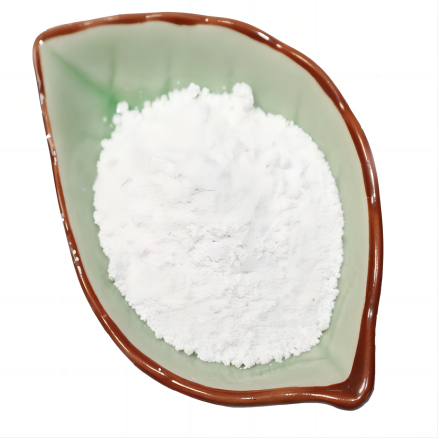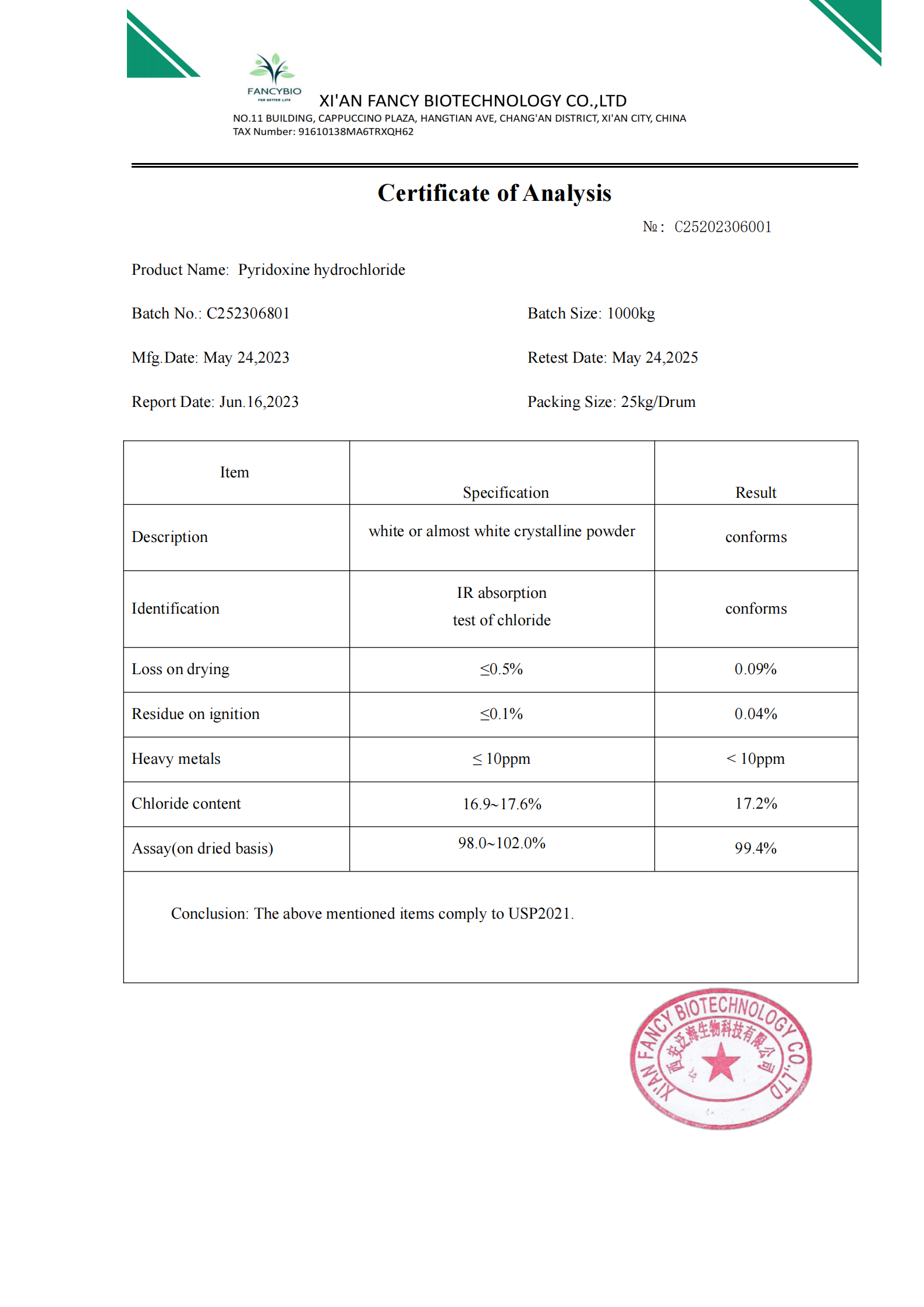La vitamina B6, también conocida como piridoxina, es una vitamina hidrosoluble que desempeña un papel crucial en diversas funciones corporales.


Vitamina B6 CAS #58-56-0
La vitamina B6, también conocida como piridoxina, es una vitamina hidrosoluble que desempeña un papel crucial en diversas funciones corporales.
La vitamina B6 (VB6), disponible habitualmente en forma de suplemento, suele presentarse en forma de polvo cristalino blanco o blanquecino. Es hidrosoluble y también puede encontrarse en comprimidos y cápsulas. La VB6 desempeña un papel crucial en los procesos metabólicos del organismo, ayudando a convertir los alimentos en energía. Es especialmente importante para el desarrollo del cerebro, el apoyo al sistema inmunitario y la producción de glóbulos rojos. La VB6 es esencial para sintetizar neurotransmisores como la serotonina y la dopamina, que influyen en la regulación del estado de ánimo. También ayuda en el metabolismo de aminoácidos y proteínas. Las deficiencias de VB6 pueden provocar anemia, trastornos cutáneos y problemas relacionados con los nervios. En los alimentos, la VB6 se encuentra en las aves de corral, el pescado, las patatas y las frutas no cítricas.
Funciones y aplicaciones:
1.Metabolismo: La vitamina B6 es esencial para el metabolismo de los hidratos de carbono, las proteínas y las grasas. Ayuda a convertir los alimentos en energía, que el cuerpo puede utilizar para diversas funciones.
2.Función del sistema nervioso: La vitamina B6 interviene en la síntesis de neurotransmisores, como la serotonina, la dopamina y el ácido gamma-aminobutírico (GABA). Estos neurotransmisores desempeñan papeles vitales en la regulación del estado de ánimo, la función cognitiva y la salud general del cerebro.
3.Producción de hemoglobina: La vitamina B6 es necesaria para la síntesis de hemoglobina, la proteína de los glóbulos rojos que transporta el oxígeno por todo el cuerpo. Unos niveles adecuados de vitamina B6 son cruciales para mantener unos niveles saludables de oxígeno en la sangre.
4.Función inmunitaria: La vitamina B6 interviene en el buen funcionamiento del sistema inmunitario. Ayuda a producir anticuerpos, que son proteínas que ayudan al organismo a combatir infecciones y enfermedades.
5.Salud de la piel: La vitamina B6 interviene en la producción de colágeno, una proteína que ayuda a mantener la estructura y elasticidad de la piel. Unos niveles adecuados de vitamina B6 pueden contribuir a una piel sana.
6.Regulación de la homocisteína: La vitamina B6, junto con otras vitaminas B como la vitamina B12 y el folato, ayuda a regular los niveles de homocisteína en la sangre. Los niveles elevados de homocisteína se asocian con un mayor riesgo de enfermedad cardiovascular, por lo que mantener niveles adecuados de vitamina B6 es importante para la salud del corazón.
7.Prevención de la anemia: La deficiencia de vitamina B6 puede contribuir a ciertos tipos de anemia, en particular la anemia sideroblástica, que se caracteriza por la incapacidad del cuerpo para utilizar adecuadamente el hierro para producir hemoglobina.

Our professional sales team are waiting for your consultation.